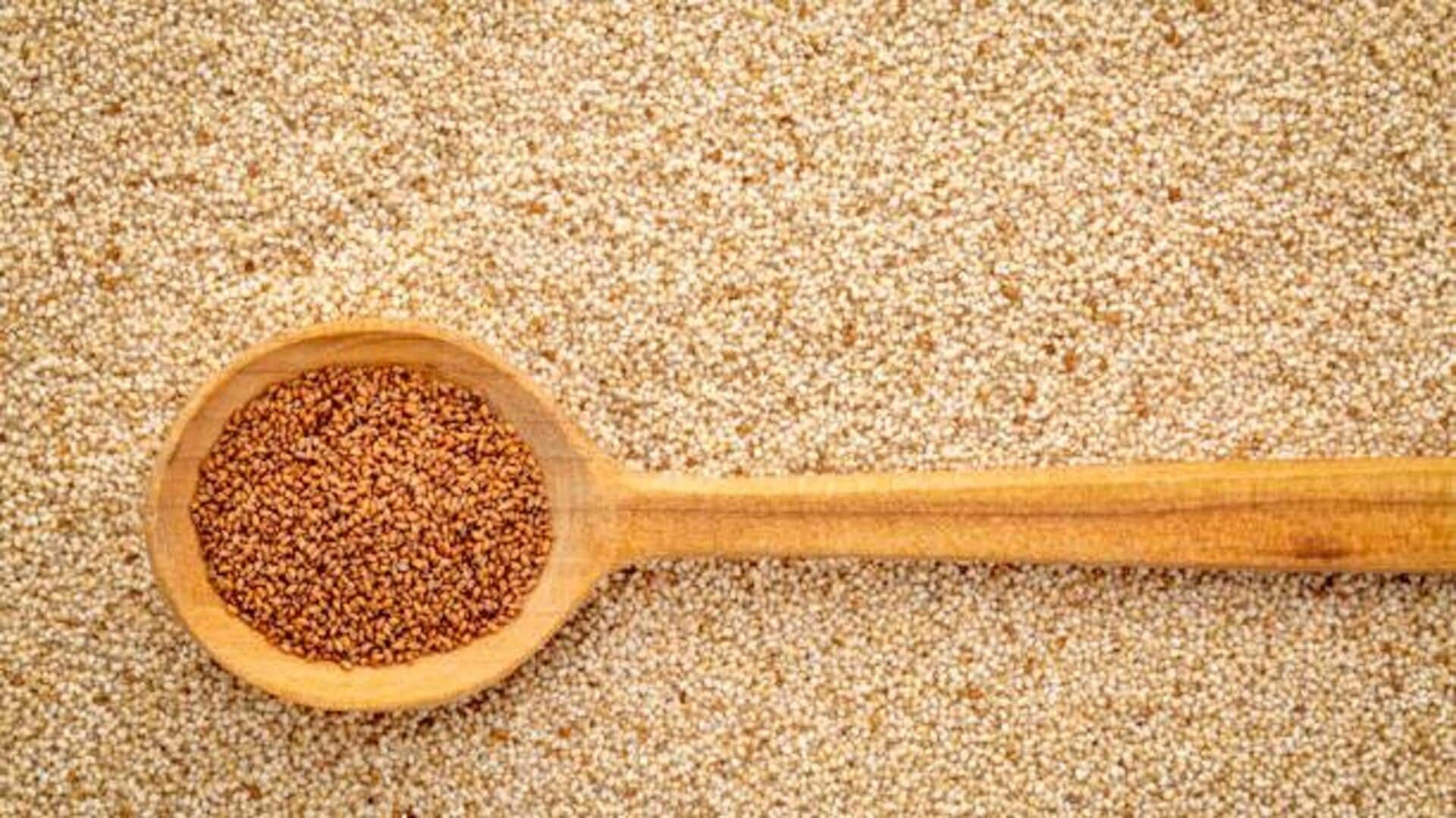
Why you should add teff to your diet
What's the story
Teff, an ancient grain from Ethiopia, is known for its nutritional value and versatility in cooking. It's so tiny, but packed with protein, fiber, iron, and calcium, making it an excellent healthy alternative to conventional grains. Plus, its unique flavor elevates meals, offering benefits for anyone looking for nutritious options.
Nutrients
Nutritional powerhouse
Teff is packed with nutrients, making it a valuable addition to any diet. It contains high levels of protein, supporting muscle growth and repair. Further, teff is rich in dietary fiber aiding digestion and helping maintain healthy cholesterol levels. The grain also provides essential minerals like iron for blood health and calcium for strong bones. Its nutrient density makes it ideal for those looking to boost their nutritional intake.
Gluten-free
Gluten-free alternative
For the gluten intolerant and those with celiac disease, teff makes a good substitute for wheat-based products. Naturally gluten-free, it can be added to a variety of recipes without triggering the side effects of gluten consumption. Teff flour can be used to bake bread or make pancakes, without compromising on texture and taste, or on dietary restrictions.
Versatility
Versatile cooking ingredient
Teff's versatility goes beyond traditional Ethiopian dishes like injera. You can use it in countless recipes, be it a breakfast porridge or savory stews, or even desserts such as cookies or cakes when ground into flour form. Its mild, nutty flavor goes well with both sweet and savory dishes alike, while giving you depth of taste along with nutritional value.
Sustainability
Sustainable crop choice
Cultivating teff requires fewer resources than other grains, considering the fact that it adapts to various climates, including drought-prone areas where water scarcity challenges agriculture practices globally today. This not only renders it nutritious, but also an environmentally friendly crop choice, promoting sustainable farming practices worldwide.